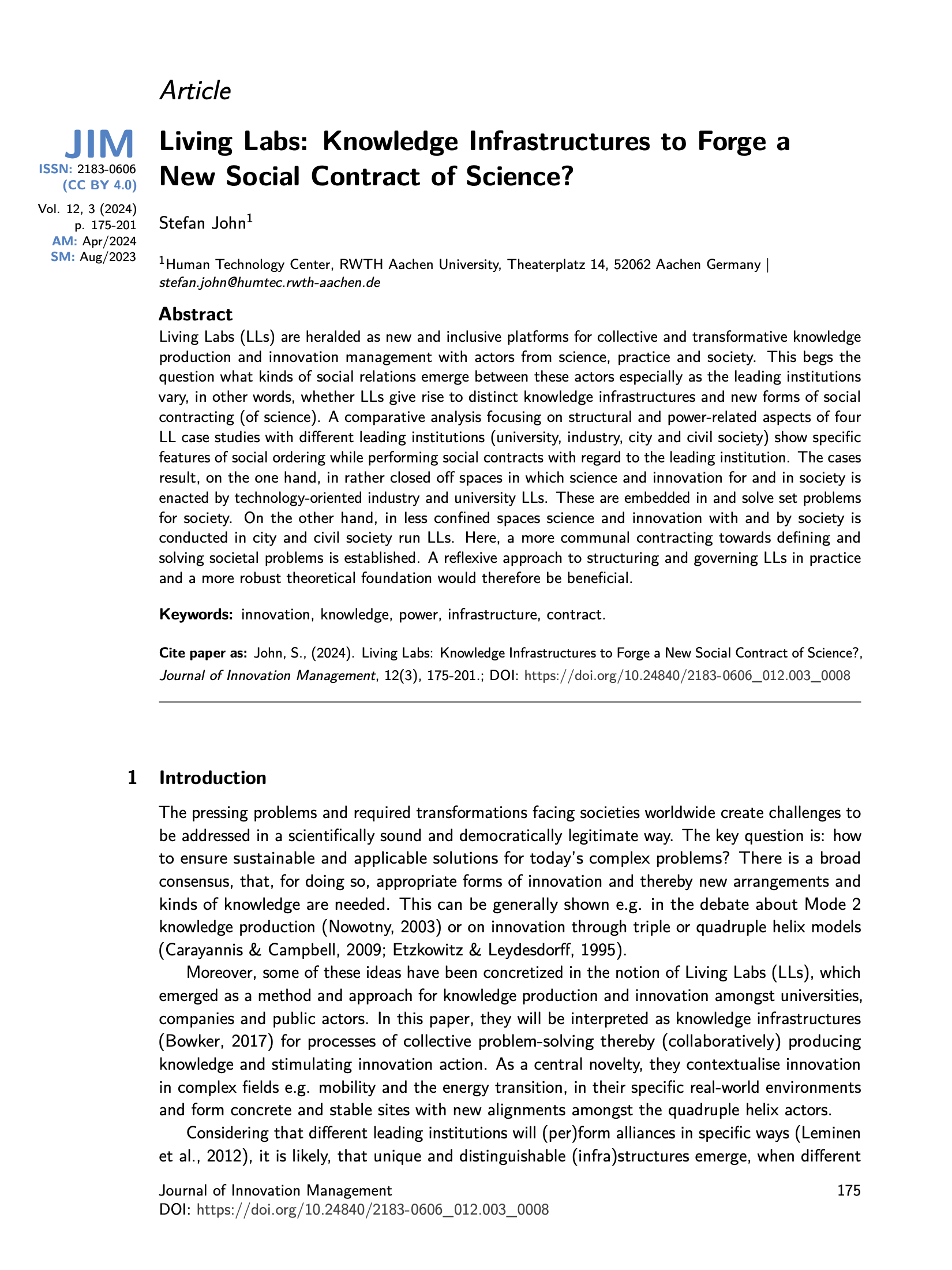Living Labs: Knowledge Infrastructures to Forge a New Social Contract of Science? [Special Issue on Living Labs and Collaborative Innovation]
Main Article Content
Abstract
Living Labs (LLs) are heralded as new and inclusive platforms for collective and transformative knowledge production and innovation management with actors from science, practice and society. This begs the question what kinds of social relations emerge between these actors especially as the leading institutions vary, in other words, whether LLs give rise to distinct knowledge infrastructures and new forms of social contracting (of science). A comparative analysis focusing on structural and power-related aspects of four LL case studies with different leading institutions (university, industry, city and civil society) show specific features of social ordering while performing social contracts with regard to the leading institution. The cases result, on the one hand, in rather closed off spaces in which science and innovation for and in society is enacted by technology-oriented industry and university LLs. These are embedded in and solve set problems for society. On the other hand, in less confined spaces science and innovation with and by society is conducted in city and civil society run LLs. Here, a more communal contracting towards defining and solving societal problems is established. A reflexive approach to structuring and governing LLs in practice and a more robust theoretical foundation would therefore be beneficial.
Article Details
Authors who publish with this journal agree to the following terms:
- Authors retain copyright and grant the journal right of first publication with the work simultaneously licensed under a Creative Commons Attribution License that allows others to share the work with an acknowledgement of the work's authorship and initial publication in this journal.
- Authors are able to enter into separate, additional contractual arrangements for the non-exclusive distribution of the journal's published version of the work (e.g., post it to an institutional repository or publish it in a book), with an acknowledgement of its initial publication in this journal.
- Authors are permitted and encouraged to post their work online (e.g., in institutional repositories or on their website) prior to and during the submission process, as it can lead to productive exchanges, as well as earlier and greater citation of published work (See The Effect of Open Access).

